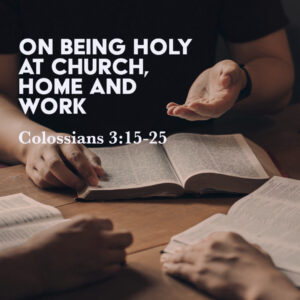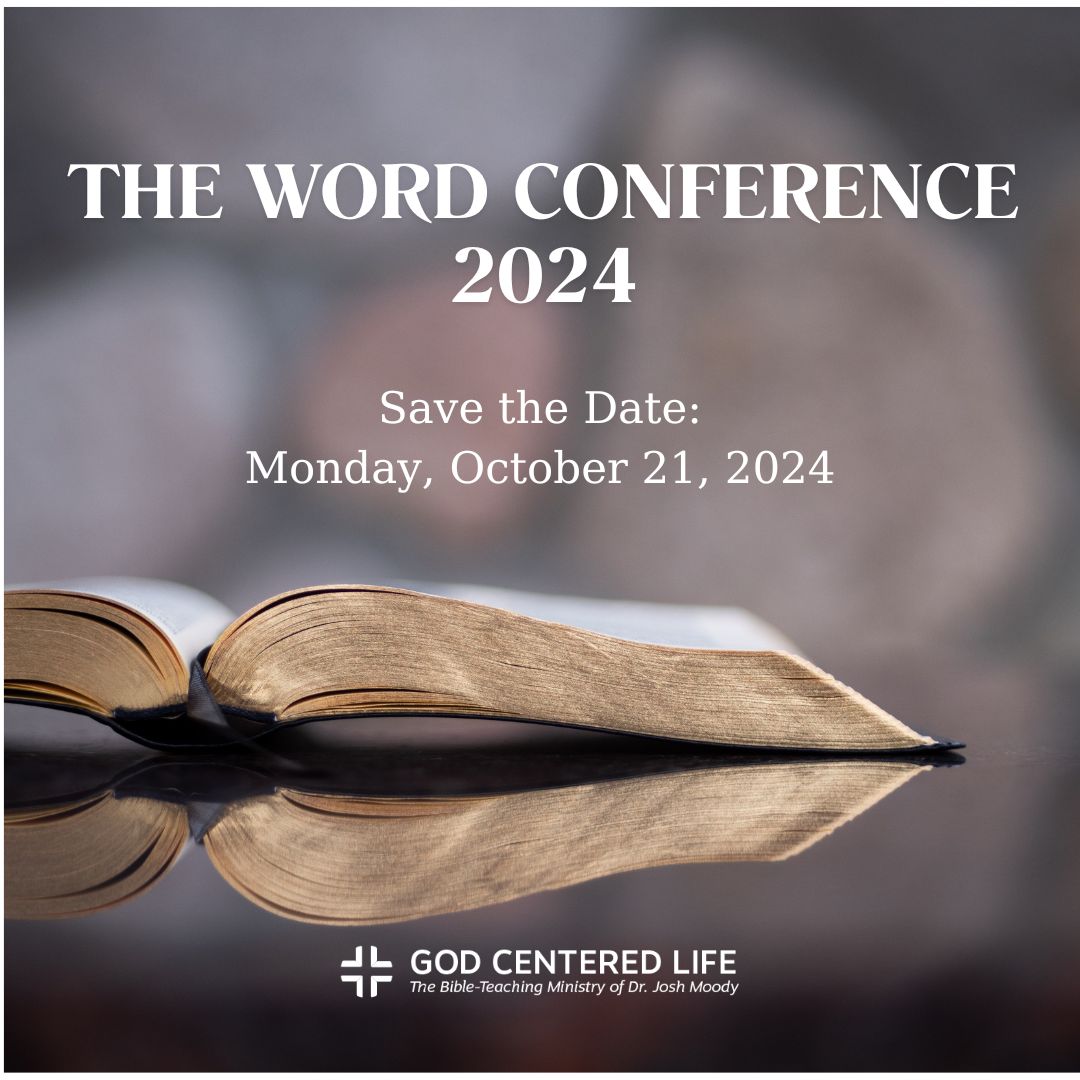Colossians 3:15-25: On Being Holy at Church, Home and Work
July 7, 2023
TODAY'S BIBLE READING:
1 Chronicles 15-16, Psalm 130-131, Luke 8:40-56, Colossians 3:15-25

Paul continues to teach about holiness. Now he moves from the more personal realm of holiness to that of holiness in church and at home and at work. Each time, he is applying his already established principles about holiness — namely, that holiness is not a result of religious rules and ceremonies. Such rules and ceremonies may appear to be wise, but really they lack any value in restraining sensual indulgence. Instead, first of all, holiness is dependent upon the risen power of Jesus at work in us. With such power, we are then called to put to death the old way of living and put on the new way of living following after the model of Jesus. But what does this mean in church, at home and at work?
First, in church (verses 15 to 17), Paul starts by emphasizing peace. If there is much discord and friction in a church, it is often because the gospel is being forgotten. We are members of one body. Therefore – of course! – be at peace with each other. And what is more, be thankful. A great solution to many church problems is to pause and give thanks. What a remedy for complaining, grumbling, worrying and idolatry: the thankful worship of Jesus!
Then Paul wants to emphasize the centrality of the gospel, the Bible, the “message of Christ.” Everything a church does should be centered on the “message of Christ.” We should let that message dwell in us richly — and not just from the pulpit, but in every part of church life. And not just in what is said, but also in what is sung. All sorts of different kinds of melody, instrumentation and style (psalms, hymns, songs), but all must have the “message of Christ,” the gospel, the Word of God dwelling in them richly. Then, finally, church must be all about Jesus: What is the vision? The exaltation of Jesus. Whatever you do, do it “all in the name of the Lord Jesus.”
Then, second, Paul comes to home life (verses 19-21). There is much here that has caused controversy from time to time in church circles, but its teaching was intended to be more practical than polemical. Wives are to submit to husbands as is fitting in the Lord. The word “submit” today means, to secular (and some church) society, things like abuse, being dominated, a power game. None of that is intended by Paul. The only kind of submission he wants is that which is “fitting in the Lord.” Wives are not called to submit to things that are not fitting in the Lord. And at the same time, husbands are called to love their wives and not be harsh with them. If only husbands and wives could learn their parts in the dance steps of marriage – love and respect — so much would be easier at home. Husbands need to be honored and respected. Wives need to be loved and adored. Play your part, fulfill your role, dance the steps as the Lord designed, and you will find that the music of marital harmony will commence and build throughout your life and marriage.
But Paul also tells children to obey their parents. Once more, there is an abuse of this text. They are to obey them as what is pleasing to the Lord. No child is called to obey their parents’ commands to do something sinful or stop following Jesus. But in normal circumstances, the most important thing a young child can learn to do is to obey his or her parents. As a child grows and becomes a teenager, and of course later an adult, a wise parent gradually loosens the reins and allows the child to grow and flourish into a responsible autonomous adult. Paul particularly addresses the role of fathers, not because mothers are not also responsible, but because naturally, fathers have a less organically essential role to the nurture of children and fathers can be tempted to neglect their duties. Particularly, fathers here are called not to embitter their children, or they will become discouraged. The power that a father has in a home is often under-realized by fathers; a harsh word, a sly dig, or an undermining comment can discourage a child and leave that child (but for the grace of God) permanently disadvantaged through life. Fathers, see it as your job to give courage to your children so that they can be equipped to face what is often a dangerous and difficult world.
Third, Paul then applies his teaching about holiness to the working world (verses 22-25). In context, Paul is addressing slavery, of course. Paul does not here call slaves to get their freedom, but he does elsewhere (see the book of Philemon and 1 Corinthians 7:21). Paul here is addressing a situation that was socially fixed at that time – wrong as it is – and giving advice on how to operate and survive within it. But there is no slave nor free in Christ. Remember too that ancient Roman slavery was not the same as antebellum slavery. Roman slavery could also be terrible and horrific – let it not be misunderstood. But slaves could also be doctors and skilled members of a household. So we apply this text primarily in our context today, though, to work. If you are an employee, what is your responsibility? If you are an employer, what is your responsibility? Employees are essentially to remember that ultimately they are working for God. Therefore, they are to work with all their heart. Christian employees are to be the very best and most reliable workers because they are working for God. Employers have a similar responsibility – which the reading asks us to consider tomorrow but which more properly belongs to this passage today – and are to treat their workers remembering that they too have a master in heaven and will have to give an account to God for how they treated those who work for them.
Through all of this, the gospel is being applied to practical matters of Christian holiness.
ABOUT THE AUTHOR
Josh Moody (Ph.D., University of Cambridge) is the senior pastor of College Church in Wheaton, IL., president and founder of God Centered Life Ministries, and author of several books including How the Bible Can Change Your Life and John 1-12 For You.
WANT MORE?
To receive God Centered Life devotionals directly in your inbox, as well as other resources, enter your email address in the form at the bottom of this page and click "subscribe."


